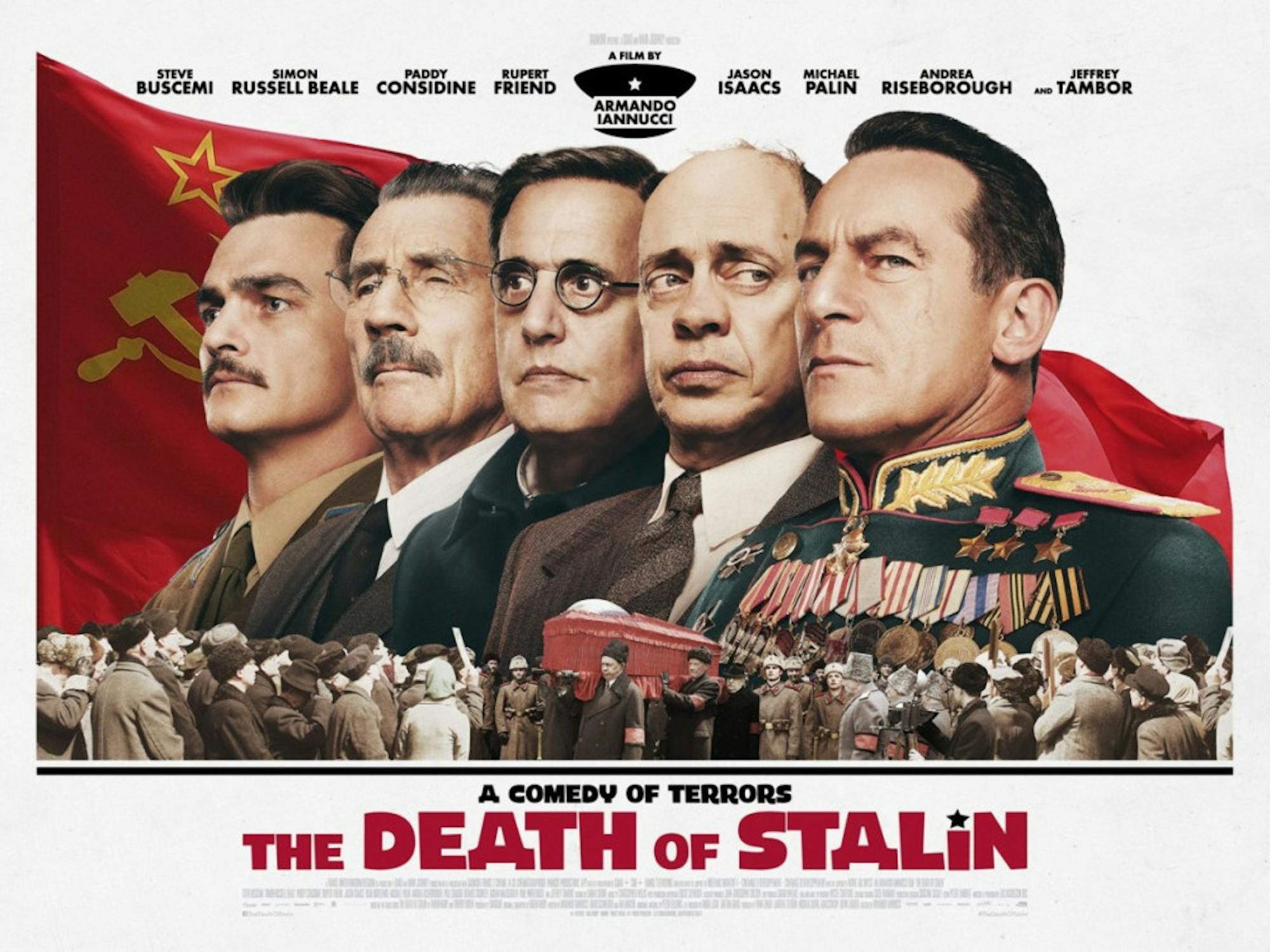"The Death of Stalin" (2017), Armando Iannucci’s second feature film, portrays the struggle for power following Stalin’s death over control of the USSR between Lavrentiy Beria (Simon Russell Beale), Nikita Krushchev (Steve Buscemi) and Georgy Malenkov (Jeffrey Tambor). Most of the film focuses on the fight when choosing Stalin's successor and ends with Krushchev coordinating the execution of Beria and finally consolidating power. "Death of Stalin" is most successful in its critique of authoritarianism and portrayal of the constant fear that members of such a society face, regardless of whether they are members of the ruling class (as represented by the Central Committee) or general public.
The film opens with a live recital broadcast on Radio Moscow. During the recital Stalin calls the director and asks for a recording. After the performance finishes and the director finds there’s no recording, he runs out and forces the orchestra to replay the performance.
The film then pivots to Stalin having dinner with Kruschev, Malenkov, Beria and Vyascheslav Molotov (Michael Palin). After Molotov walks out, Beria remarks to the rest of them that Molotov has been put on Stalin’s hit list and will be assassinated within the next few days.
Krushchev asks Beria what the reasoning behind the assassination is, but he gets no clear answer. Stalin, emblematic of total consolidated and centralized power, has no checks in this film and the results of this are arbitrary and horrific executions.
Ironically, this lackadaisical approach to executions comes back to bite Stalin. When members of the Central Committee search for doctors to heal Stalin, they find all of the good doctors are either dead or thousands of miles away in Siberia, all having been accused of plotting to kill Stalin.
As anyone who is familiar with Soviet history knows, and as the constant references to people who are killed for committing treason pile up, it is clear that these accusations were often based on fabricated, false or no evidence, and millions of innocents were executed or sent to the gulags.
Similar scenes pop up throughout the film. Whether it’s the panicked decision-making of the Central Committee, where many of the voters only vote yes or no on issues if they see someone else pushing for it, or constant and loud references to how great Stalin was as a leader and the fears of surveillance and electronic bugging devices, the film clearly and eloquently illustrates the suffocating reality of living in the Soviet state and constant panic among elites of falling out of favor.
Despite the tenuous situation that the characters find themselves in, Iannucci keeps the movie light through slapstick humor (when finding Stalin dead, numerous characters kneel in his excrement and then loudly exclaim their displeasure) and various plays on the tenseness of the situation. (Characters proclaim, even after his death, the perfectness of Stalin in various situations.) The sheer number of jokes, however, ends up distracting from the plot and make it difficult for the conversation to be followed. Certain scenes involving two characters talking about serious matters unfortunately only end with jokes, leaving the viewer uncertain about the scene’s resolution.
In part because of the emphasis on slapstick humor and the quick scenes, the plot seems especially lacking. The other members of the Central Committee all turn on Beria following an angry outburst by him. However, this outburst seems to come out of the blue, and the other members of the Central Committee all seem similar in wanting the decision to be unanimous amongst the rest of them before moving forward.
"Death of Stalin" also suffers from the one dimensionality of the main characters. Kruschev, who eventually takes power, is always neurotic and worried; Beria remains malicious and plotting until his death; and Malenkov is continuously unsure of his leadership abilities. There is almost nothing that differentiates the rest of the Central Committee characters.
This lack of character depth makes it difficult to emotionally invest in the film. "Death of Stalin" ultimately falls short of success because it prioritizes political commentary and fast jokes rather than plot development and character complexity.
'Death of Stalin' provides commentary on authoritarianism, cheap laughs, but not much else

Steve Buscemi, Michael Palin, Jeffrey Tambor, Jason Isaacs, and Rupert Friend are pictured in a promotional poster for 'The Death of Stalin' (2017).
Summary
While entertaining, "Death of Stalin" ultimately falls short of success because it prioritizes political commentary and fast jokes rather than plot development and character complexity.
3 Stars





